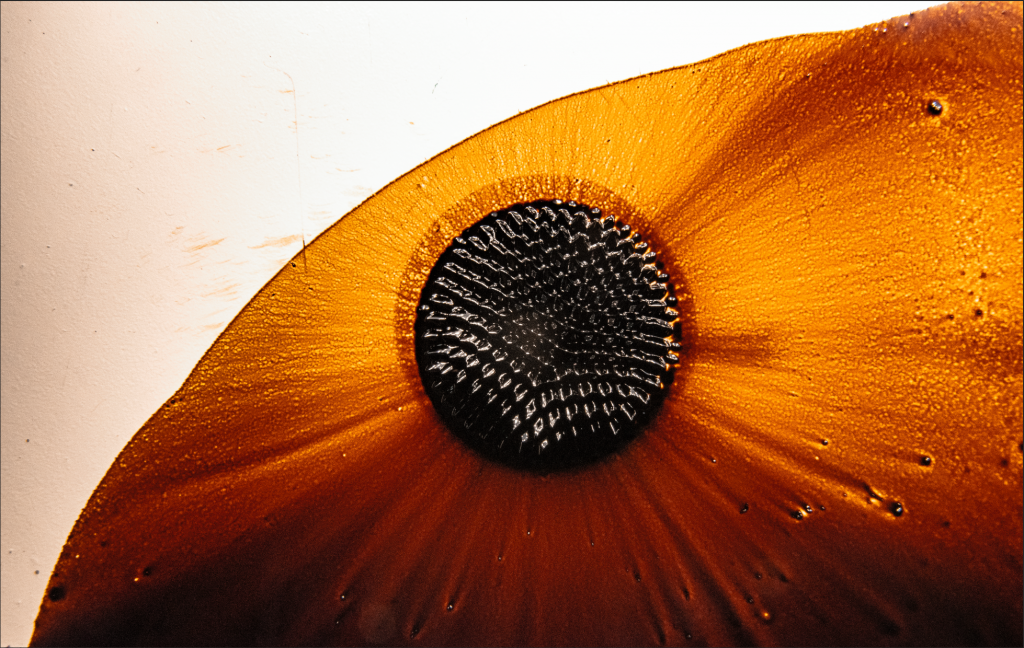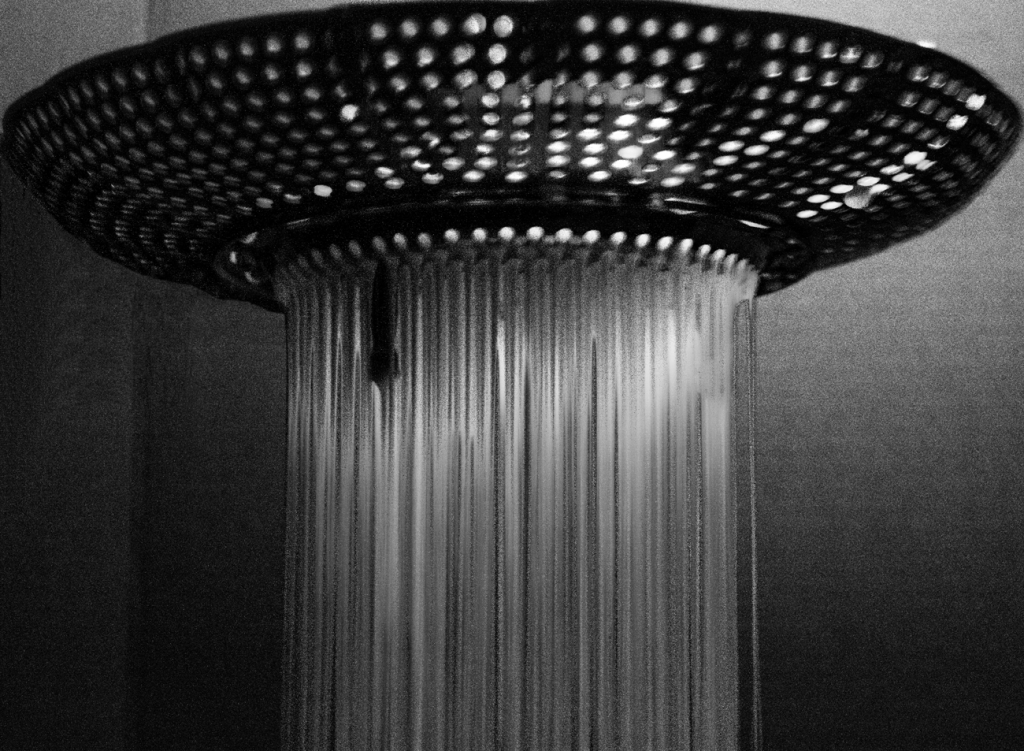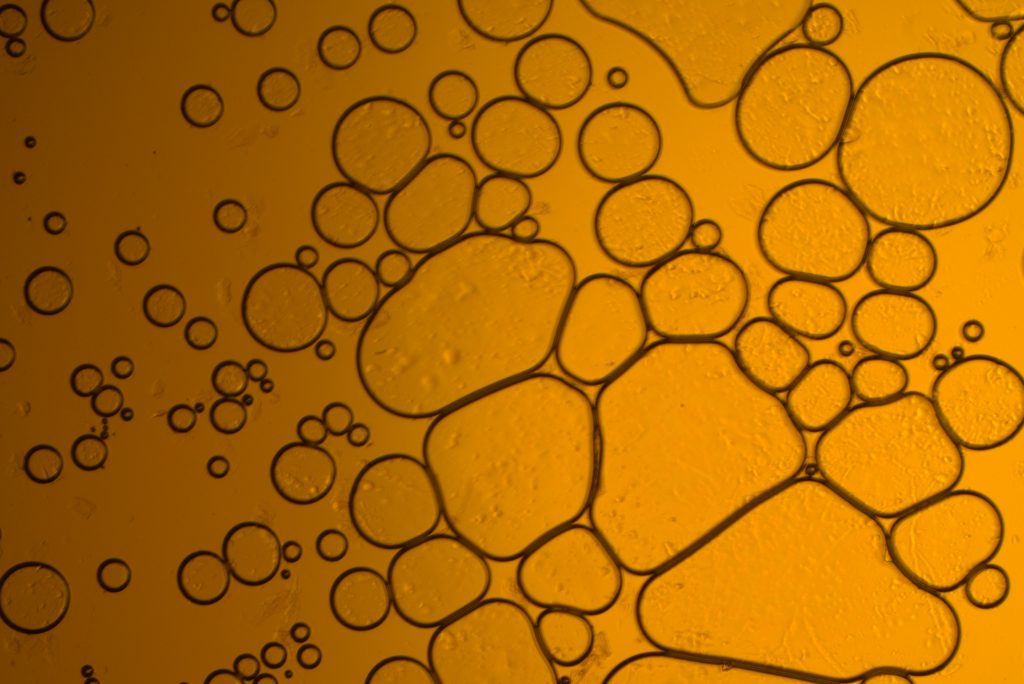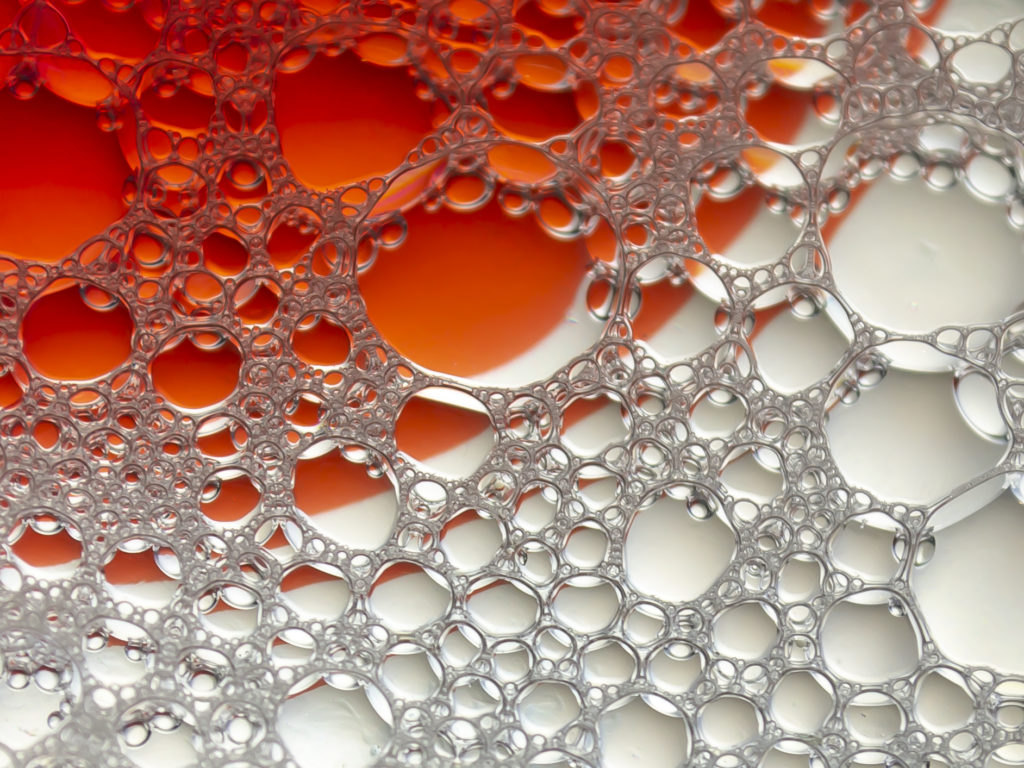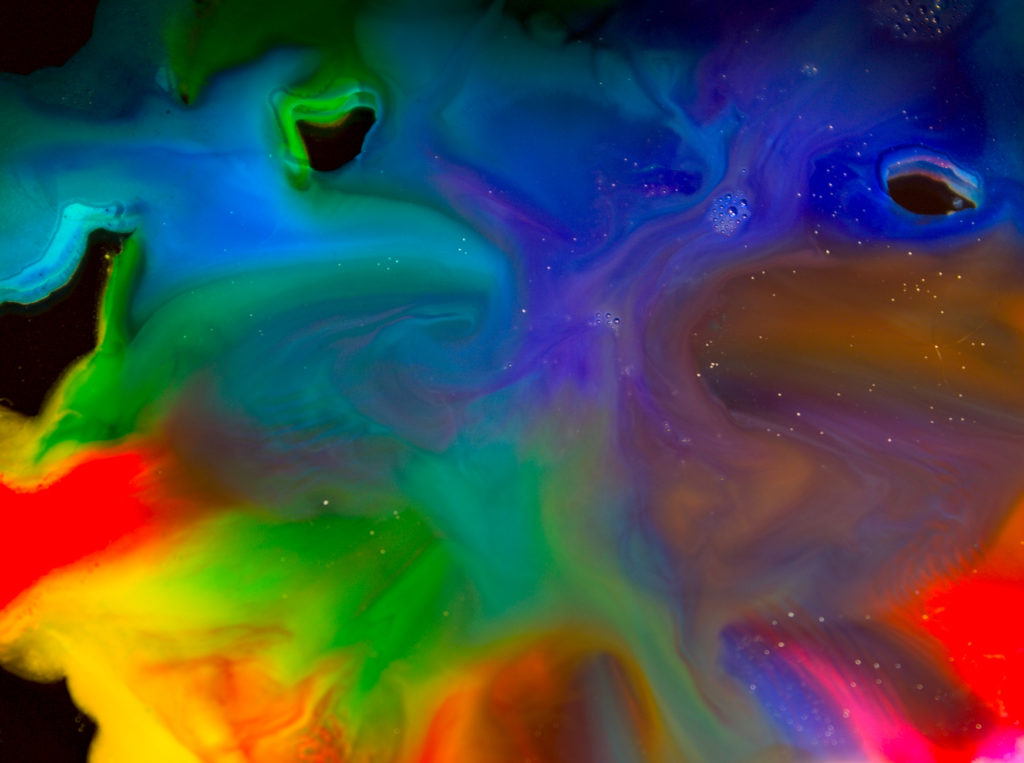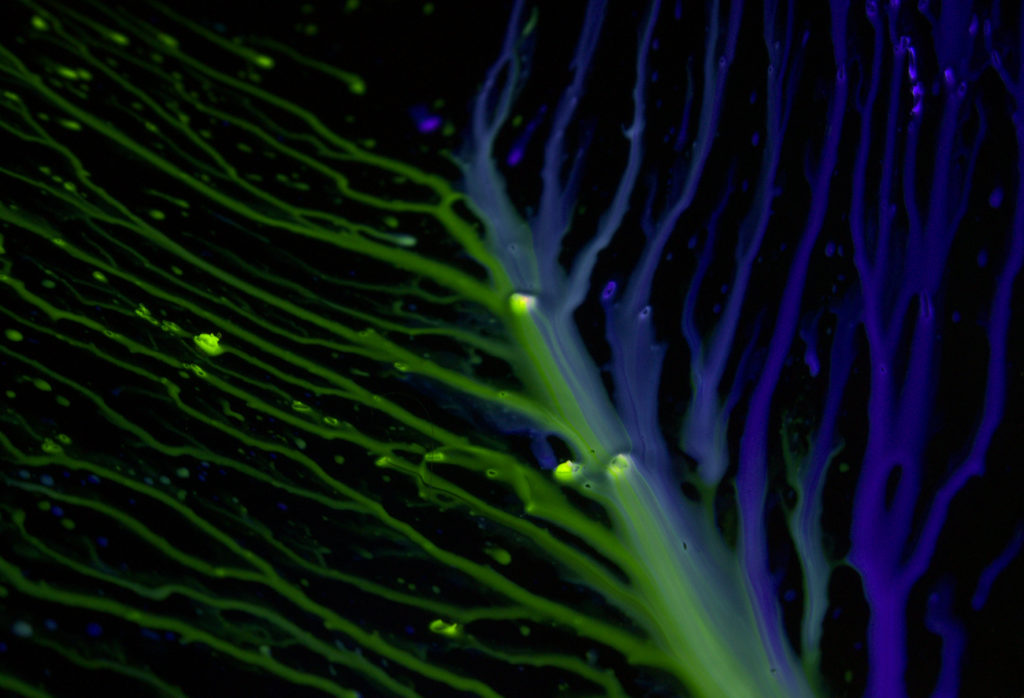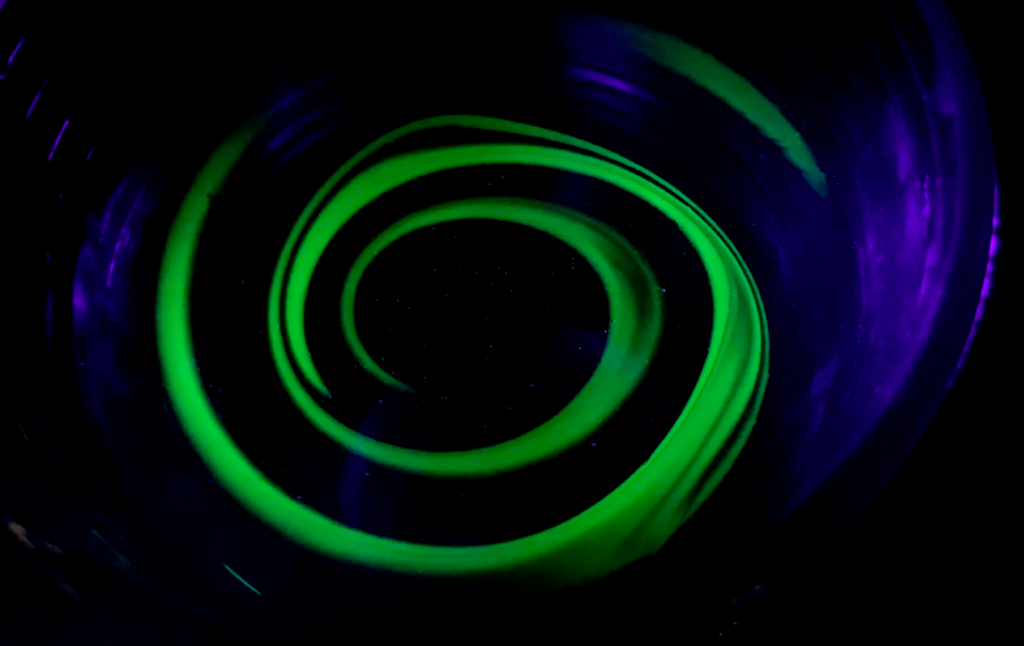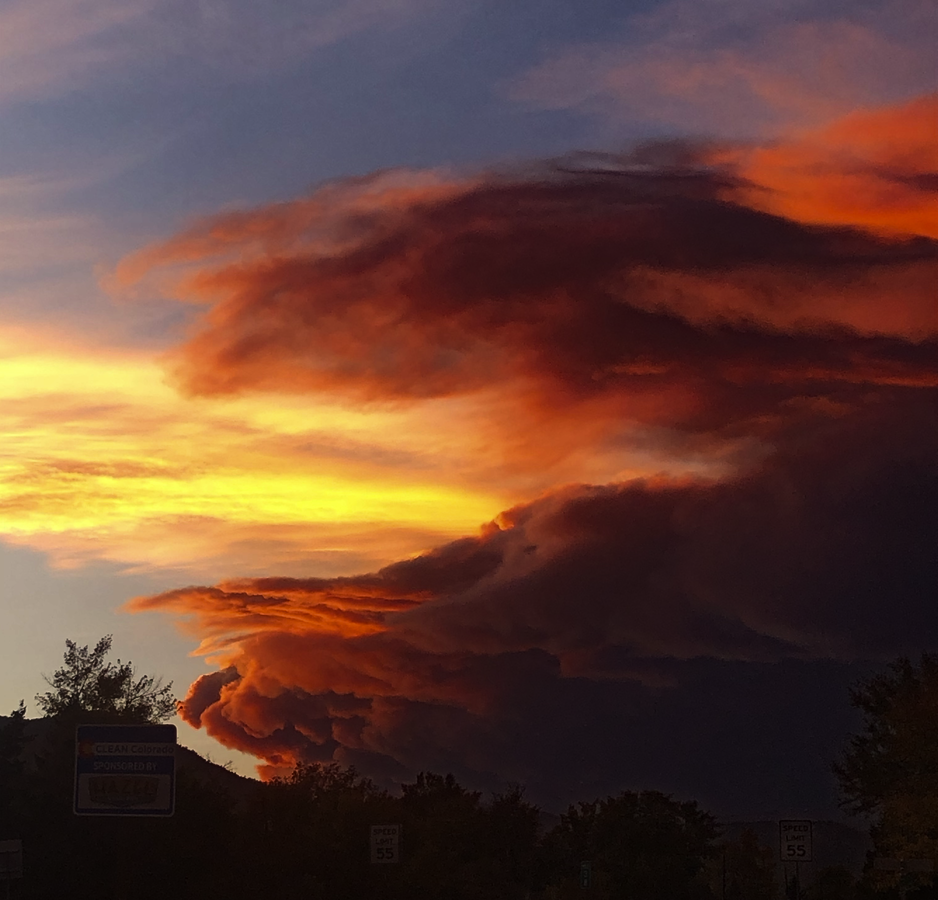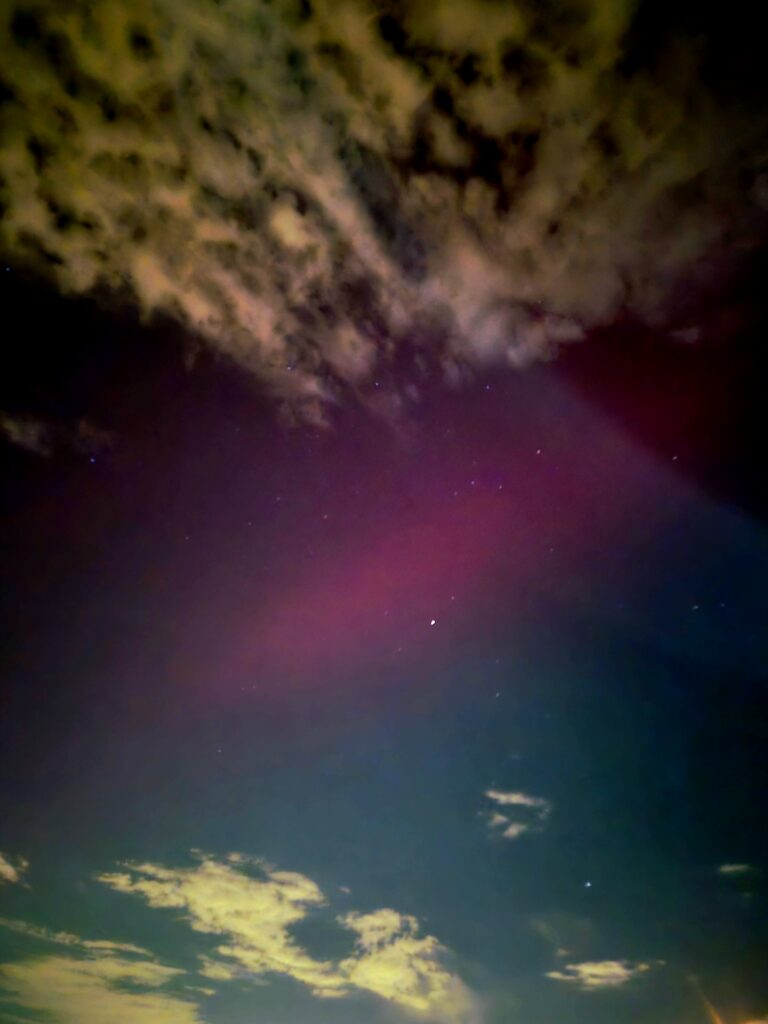Flow visualization is the process of making the physics of fluid flows (gases, liquids) visible. This site is devoted to a course for mixed teams of engineering and fine arts photography and video students at the University of Colorado. In this course, we explore a range of techniques for creating images of fluid flows. Our work is motivated not just by the utility and importance of fluid flows, but also by their inherent beauty. Flow visualization is for everybody: if you have paid attention to the patterns while stirring milk into coffee or stared at the curl of a rising tendril of smoke you have participated in flow visualization. Art and science are similar in that they both thrive on deep seeing, on expanded perception and attention, which can be gained through simple experience. Everyone is capable of this. Spend some time noticing flow visualization around you and you’ll find your life is richer. Please explore this site; there are resources for teachers and students of all levels, as well as amazing images that anyone can enjoy.
Galleries
Yay, all student work is finally up! I’m in the process of categorizing and tweaking recent work (2018 to 2016), and then I’ll get to updating earlier work.
Old galleries, from 2003 to 2012 in the original html format (not great for mobiles, sorry) and new, 2013 to present (fully responsive!)
Flow Vis Collection
In honor of the American Physical Society Division of Fluid Dynamics 70th Annual meeting a collection of Flow Vis work spanning the entire history of the course was projected on the Grand Concourse at the Colorado Convention Center, November 19-21, 2017. The collection is available online in two parts: Part 1 and Part 2
Join us on Facebook
Post your Flow Vis web finds for others to enjoy: Flow Vis Facebook Group.
Videos on Vimeo
Old and new student videos are being posted on Vimeo too, in the Vimeo Flow Visualization Student Work Channel and anybody can join and add to the Flow Visualization Vimeo Group.
Try it yourself!
Here are two modules developed for middle schools:
Floating and Falling Flows illustrates some physics of buoyant plumes
The Density Rainbow and the Great Viscosity Race illustrate the fluid properties of density and viscosity.
Comments on how these experiments worked for you are welcome. Email us.
Use of Website Content
Images and videos from this site are available under the Creative Commons Attribution license. If you would like access to higher resolution images please contact Prof. Hertzberg. Educators are welcome to use all posted course materials, again with attribution.
Flow Visualization Open Pedagogy
This site represents Open Pedagogy, in that the content is co-created by the Flow Vis instructor and students as an Open Educational Resource. Each image or video created by students is accompanied by a report detailing how the image was made. Also, all course materials are available on this site, including lecture notes, lecture videos, syllabus, assignments and a textbook (the Flow Visualization Guidebook by Jean Hertzberg), so you can experience the whole course on your own if you desire.
Flow Visualization Traveling Show, No Longer Traveling:
Fifteen images have been on permanent public display since 2010 in the Jennie Smoly Caruther Biotechology Building cafe at CU Boulder. Curated by Prof. Jean Hertzberg (CU Boulder) and Carla Selby (Tesseract Productions), with support from the Boulder Arts Commission. You can preview the show here.
If you would like to host a display of flow vis images for local printing or projection we can arrange access to the collection; contact Prof Hertzberg.
Aerosols From Musicians
Prof. Hertzberg and Flow Vis alumnus Abhishek Kumar have been studying aerosol emissions from musicians and performers using schlieren and laser sheet imaging. Some preliminary videos are available. These videos are used to guide collection of quantitative aerosol measurements as part of the International Coalition Performing Arts Aerosol Study. We’ve looked at singing and a number of brass and woodwind instruments, as well as the effectiveness of masks on both performers and instruments. Short answer: masks really work!
Fall 2024
This fall we are again offering fully remote sections (-002) in addition to in-person sections. The classes will be synchronous with remote students on zoom. The idea is to make Flow Vis accessible to off-campus students, including those from other institutions (via Continuing Education registration) and to offer more flexibility to on-campus students as well. The in-person classroom sections may be limited, but there is a lot of churn so don’t worry about getting in. The class will meet MWF 12:20-1:10 pm Mountain time, in ITLL 1B50 and online via Zoom. If you are having trouble registering, fill out this form to be admitted.
Enrollment is inclusive; non-engineers with an interest in film, photography and fluids are particularly welcome. This is an upper division course, not suitable for first or second year students. Mechanical engineering students are expected to have had a course in fluids. The class is cross listed. Everybody will work together, and what each person brings to the table will be valued. My expectations will be tailored for students’ different backgrounds, but this is really a fail-safe course. What you get out of it depends on what you put in. See Is Flow Vis Right For You? for more info.
Articles about the course:
“Why Teach Art in Engineering?” Jean Hertzberg. Video of a two-hour keynote talk at the University Foresight Education Project— The Phase I Mid-term Meeting & International Exchange Event at the National Chen Kung University in Tainan, Taiwan, Feb. 5 2020.
Surely You Must Be Joking, Mr. Twain! Re-Engaging Science Students Through Visual Aesthetics.” Katherine Goodman, Jean Hertzberg, and Noah Finkelstein. Leonardo 53, no. 3 (January 24, 2018): 311–15. https://doi.org/10.1162/LEON_a_01604.
“Visual Expertise in Fluid Flows: Uncovering a Link Between Conceptual and Perceptual Expertise.” , Katherine Goodman, Jean Hertzberg, Tim Curran, and Erin Austin. International Journal of Engineering Education 36, no. 3 (2020): 1082–96.
“Expanding Perception: How Students ‘See’ Fluids.” Goodman, Katherine, Jean Hertzberg, Tim Curran, and Noah Finkelstein. In ASEE Conference Proceedings, 26.713.1-26.713.10. Seattle, WA, United states: ASEE Conferences, 2015. doi:10.18260/p.24050.
“Aesthetics and Expanding Perception in Fluid Physics.” Goodman, Katherine, Jean Hertzberg, and Noah Finkelstein. In Frontiers in Education Conference (FIE), 2015. 32614 2015. IEEE, 1–5. Camino Real El Paso, El Paso, TX, USA: IEEE, 2015. doi:10.1109/FIE.2015.7344311.
“Art for the Sake of Improving Attitudes towards Engineering. AC 2012-5064.”. Jean Hertzberg, Bailey Leppek, and Kara Gray. 119th ASEE Annual Conference and Exposition, San Antonio, TX., 2012.
“Images of Fluid Flow: Art and Physics by Students,”. by Hertzberg, J. and Sweetman, A. Journal of Visualization, Vol. 8, No. 2 (2005)145-152.
A Course in Flow Visualization: the Art and Physics of Fluid Flow, presented at the American Society for Engineering Education 2004 Annual Conference won the “Best Paper” PIC III award at the conference.
Categories
Flow Vis Guidebook
- Introduction to the Guidebook
- Overview 1: Phenomena. Why Does It Look Like That?
- Overview 2: Visualization Techniques
- Overview 3: Lighting
- Overview 4 - Photography A: Composition and Studio Workflow
- Overview 4 - Photography B: Cameras
- Overview 4 - Photography C: Lenses - Focal Length
- Overview 4 - Photography C: Lenses - Aperture and DOF
- Overview 4: Photography D: Exposure
- Overview 4 - Photography E - Resolution
- Overview 5 - Post-Processing
- Clouds 1: Names
- Clouds 2: Why Are There Clouds? Lift Mechanism 1: Instability
- Clouds 3: Skew - T and Instability
- Clouds 4: Clouds in Unstable Atmosphere
- Clouds 5: Lift Mechanism 2 - Orographics
- Clouds 6: Lift Mechanism 3 - Weather Systems
- Boundary Techniques - Introduction
- Dye Techniques 1 - Do Not Disturb
- Dye Techniques 2 - High Visibility
- Dye Techniques 3 - Light Emitting Fluids
- Refractive Index Techniques 1: Liquid Surfaces
- Refractive Index Techniques 2: Shadowgraphy and Schlieren
- Particles 1- Physics: Flow and Light
- Particles 2: Aerosols
- Particles 3: In Water
- Particles 4 -Dilute Particle Techniques
- Art and Science
- TOC and Zotpress test
- Photons, Wavelength and Color

